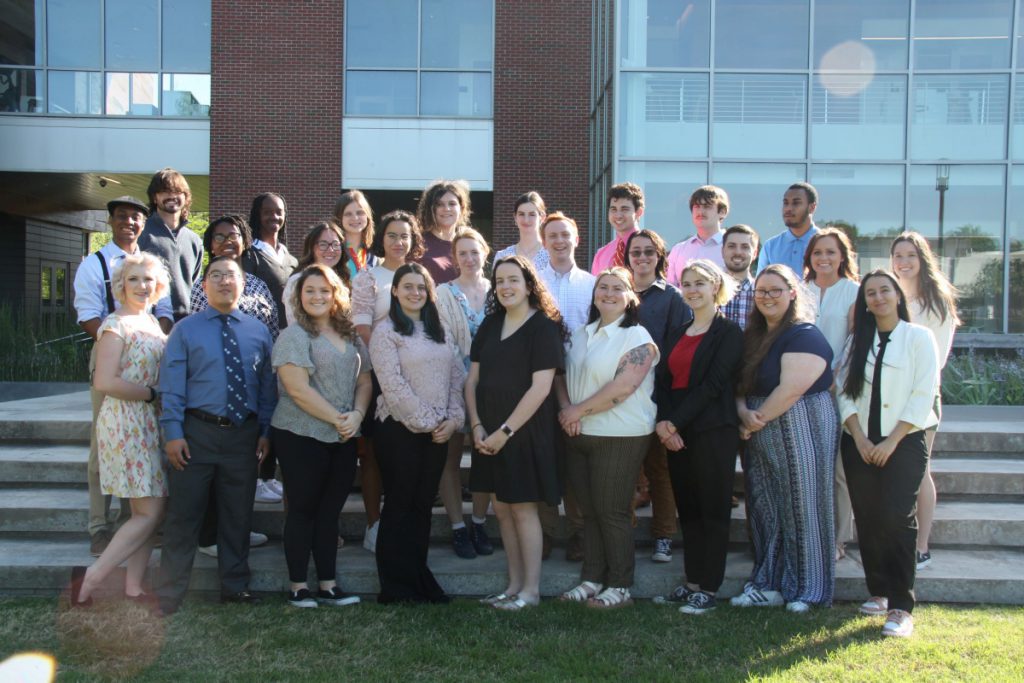Following Harvard’s definition of antisemitism, students and professionals react.
Antisemitism, regarded as one of the oldest recorded forms of prejudice, has increased in prevalence in America following the Oct. 7 attacks according to the Anti-Defamation League, with misinformation fueling a rise in harassment and violence. University campuses have seen growing tensions as debates over Israel and Palestine escalate into hate speech and discrimination.
In response to these tensions, Harvard University has moved toward strengthening its campus policies related to antisemitic discrimination and hate speech.
As part of a settlement resolving two federal lawsuits, the university has agreed to adopt the International Holocaust Remembrance Alliance (IHRA) definition of antisemitism, a comprehensive and specific definition which includes certain forms of stereotyping, anti-Zionist and anti-Israel rhetoric.
Harvard’s decision has sparked conversation among students, faculty and legal experts across the U.S., reflecting a broader national discussion about where the separation between political expression and hate speech lies.
Although the issues stemming from the Middle East are complicated to discuss due to the extensive history in the region, junior Nathan Prince emphasized open, respectful discussion to address major conflicts.
“If no one talks about the difficult subjects, then nothing will change,” Prince said. Prince is a member of the Simcha Club, the Jewish chapter of VWU’s campus ministries.
“Unfortunately, in many cases, what is happening on campuses goes beyond political debate and becomes targeted harassment,” senior Emma Wehr, an initial founder of Simcha Club, said.
She pointed to instances of antisemitism that reached the news at universities such as UCLA, University of Rochester and Columbia, all of which have experienced rising tensions, protests and incidents of hate speech surrounding the conflict.
“Meaningful discussions can only happen in an environment where all students feel safe and respected,” Wehr said. “Free speech should encourage thoughtful discussion, not harassment or intimidation.”
Dr. Eric Mazur, professor of Religious Studies, discussed the complexities of discussion and debate when it morphs into hatred. “Much of the present debate–wherein much of the harassing rhetoric is directed at Jewish students, faculty members or campus guests–conflates identities in a racist dimension,” Mazur said.
“The conflation of Zionism with support for the policies or actions of the government in Israel is itself a racist act.” He equated the importance of Zionism to the safety of the Jewish people.
“Zionism is the long-held hope of the Jewish people for a homeland where they are free to live their lives as Jews,” Mazur said. “Opposing Zionism is the equivalent of telling Jews that you support the continuation of the centuries-long history of violence against Jews.”
Mazur explained his perspective on the hypocrisy in these discussions of blaming all Jewish people for the decisions of the Israeli government, which is elected by a “diverse population of citizens, only approximately 75% of whom are Jewish.”
Mazur said, “This would be like condemning … all Christians for the actions of the United States (where nearly 70% of the population is Christian).”
“Having a clear definition of antisemitism in the campus policy against discrimination can help better protect students by clarifying what constitutes antisemitic hate and ensuring that concerns are taken seriously,” Wehr said.
Currently, Virginia Wesleyan University has a policy against discrimination but no institutional definition for what constitutes hate speech, harassment or discrimination, which Wehr said has the potential to leave students vulnerable to certain forms of harassment and reduce the efficacy of disciplinary proceedings.

Campus Ministries hosted a Hanukkah party at Haygood Church, where students baked a traditional Jewish pastry, Sufganiyot.
Marie Porter|Courtesy
“As for the university’s current anti-discrimination policy, while it provides broad protections, adding more specific definitions of what discrimination looks like for different groups could help ensure that no student feels overlooked or unprotected,” Wehr said.
Prince spoke on expanding definitions for discrimination and harassment for many forms of hatred, not just antisemitism. “If some definitions are changed to be more specific, then all of the other ones need to be changed as well,” Prince said.
Mazur pointed to the difficulties of encapsulating a concept such as antisemitism into a definition which would be included in university policy.
“The history of antisemitism is far too long and far too complex for the concept to be contained in a single definition; we could take an entire semester (or year) exploring all of its roots and ramifications,” Mazur said.
Prince and Mazur said there are more ways to address antisemitism on campus than to include a specific definition in university policy. For example, Prince spoke about forming cultural bonds and educating students on the Jewish experience.
“Universities could bring Jewish speakers in to speak about Judaism as a whole to teach people about what it means to be Jewish,” Prince said. “By sharing with people what it means to be Jewish, students may feel a connection to certain beliefs and/or viewpoints, and this could bring unity.”
“A university has a primary mission–to educate–and institutions fail when they falter in the pursuit of that primary mission,” Mazur said.
He pointed towards taking a firm stand against offenders on campus. “Anyone who in any way creates any kind of impediment to that mission should risk removal from that institution,” Mazur said.
The conversation around antisemitism on college campuses brought on by Harvard’s restructuring of its policy reflects a wide range of perspectives on how best to address discrimination while protecting freedom of expression on college campuses.
By Avery Belisle

